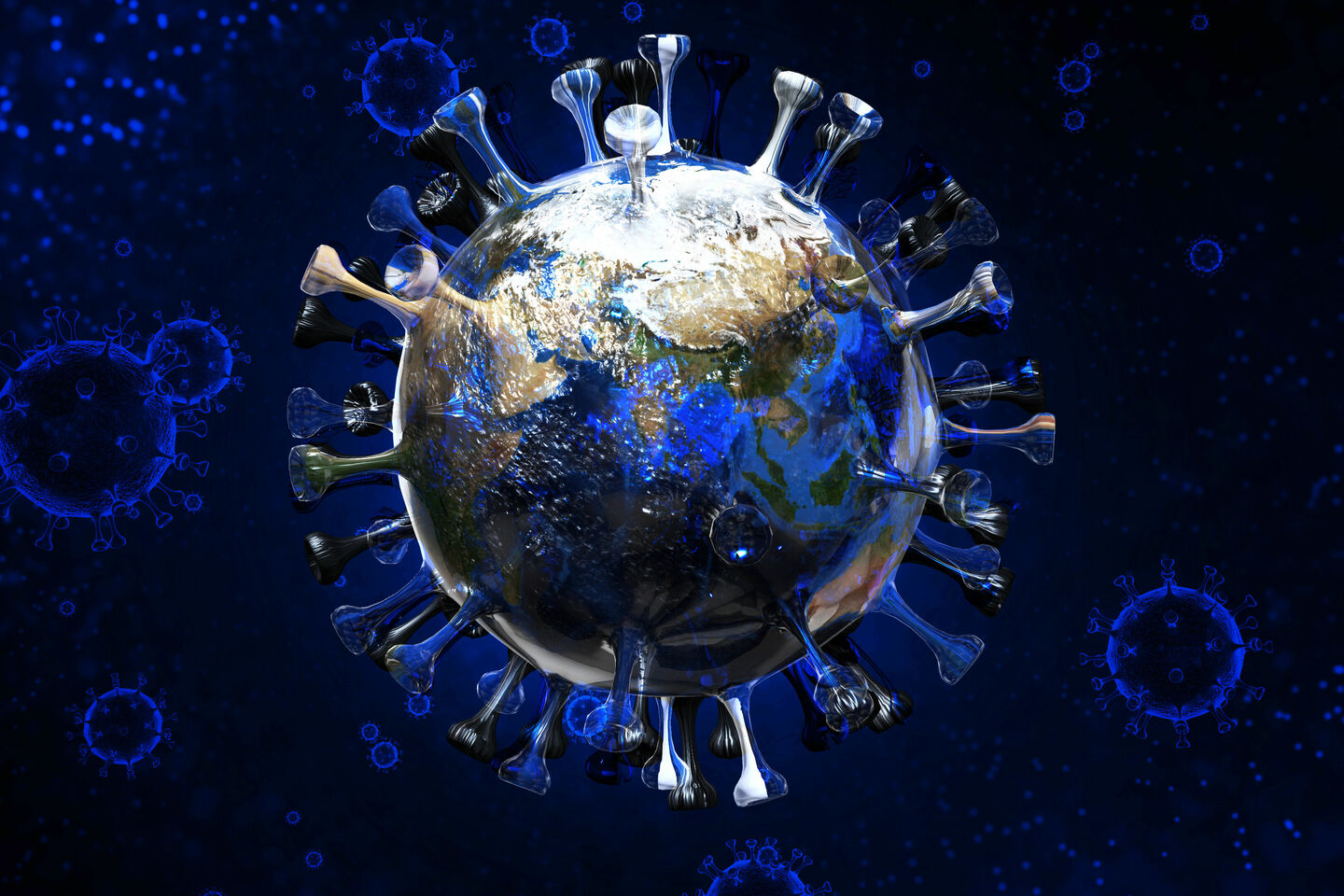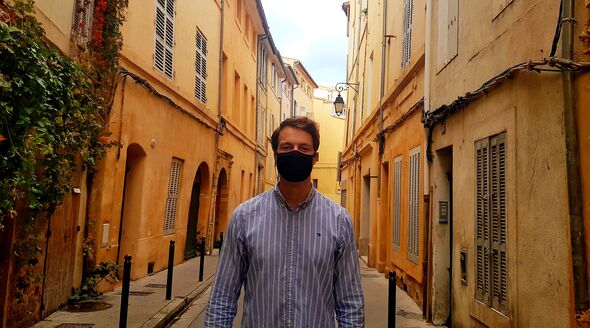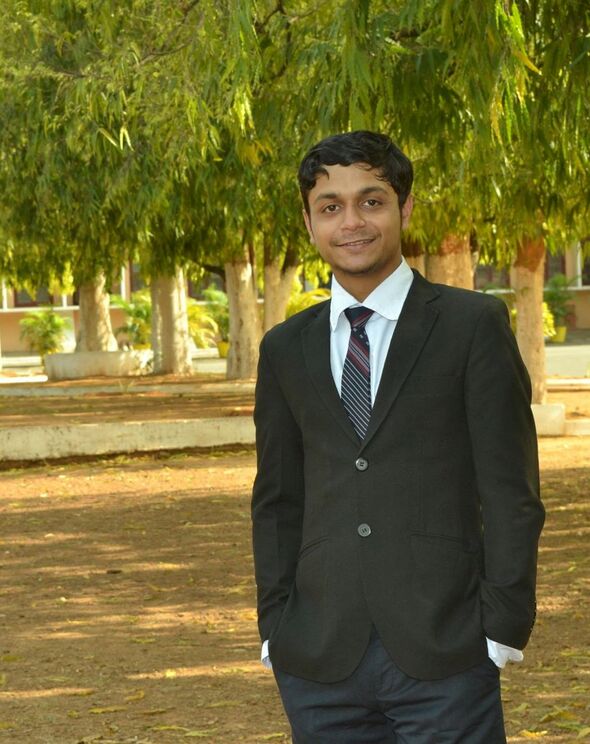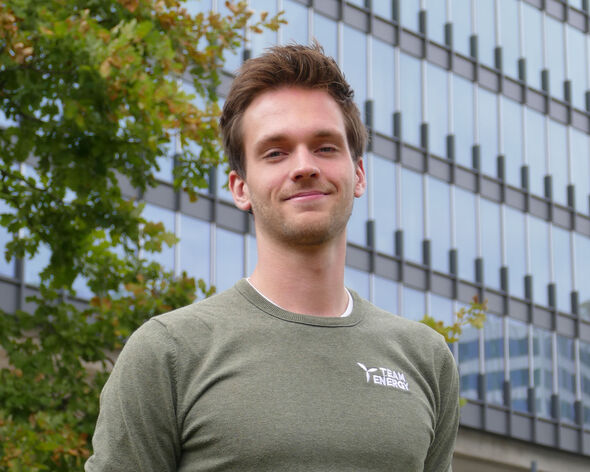
What if corona never goes away?
Three short stories
What if corona never goes away? How would this impact our lives and society? And what role would technology play in this scenario? This was the subject of the writing contest set by the Center for Humans and Technology for TU/e students. The three winners were announced today: Rik van Gorp (Chemical Engineering and Chemistry) won first prize, followed by Saikat Chakraborty and Willem Klok - both students of Mechanical Engineering.
The scenarios sketched in the three winning short stories offer little hope; corona is here to stay and a great deal, perhaps everything, will change. And the role that technology plays in this is ambiguous: at times suffocating and dominant, at times ameliorating and a source of hope.
The TU/e Center for Humans and Technology set the story contest for TU/e students. The submissions were assessed by a jury whose members were Wijnand IJsselsteijn, scientific director of the Center for Humans and Technology, writer Monique Hendriks (a former Cursor columnist!) and Marc Rosmalen, responsible for marketing and communication at the Center.
There were three prizes to be given away: 500, 300 and 100 euros. Rik van Gorp, master's student at Chemical Engineering and Chemistry walked away with the grand prize for his story Aegri Somnia.
Curfew in France
Our call finds him travelling by train back to the Netherlands from France. Since September 5th he had been stationed in Aix-en-Provence for his graduation internship at ITER, but this came to a premature end when another lockdown was announced in France. He will now be completing his internship assignment at his parents' home in Almelo. “It was very interesting and impressive to be allowed to take a look around at ITER.”
“My time in France gave me the inspiration to take part in the writing contest,” says Van Gorp. “I saw how much more relaxed the French were in their response to the corona crisis and decided to base the story on my experience in France. And since I was in quarantine because a housemate was positive, and there was a curfew, I thought ‘I'll just give it a go’.”
Click here to read Aegri Somnia
‘France is in me, but I am not in France.’ As the haze is slowly fading, Aron’s eyes start to focus on a black cat which harmonically balances herself on the edge of the fountain of Place de l’Hôtel de Ville. Behind her, the French terraces are completely filled. A swift-handed waitress zigzags her way through the packed round tables with on her fingertips a platter of fromages and in her other hand a bottle of Bordeaux.
‘No social distancing pour les Français têtus,’ Aron thinks to himself.
And who would blame them? Above all, the blue, Mediterranean sky exposes itself as a receptive friend. The gentle, pleasant Mistral wind finds its way through the narrow streets. Suddenly, a deep voice rips Aron out of his thoughts.
‘Aron, over here!’
There he is. The chinos, the sunglasses, and the summer shirt cause him to blend in well with the surroundings. His smile holds a deep mystery. Adrenaline rushes through Aron’s body.
‘Cor!’
Aron thinks back to that fatal day in April 2023. The panic, the hurry to the hospital, his coughing brother on the isolated hospital bed… Luckily, nothing of that has had an effect on his brother in this new, serene environment. They started walking away from the turbulence of the terrace, into the labyrinth of the French, narrow streets. Meanwhile, Aron’s thoughts are chaotic. He knows that his words matter. Time matters.
‘Do you remember our holiday when dad and mom brought us here?’ Aron asks.
‘Of course I do! Our trip with dad to the caves of Lascaux inspired me to start painting, you know that Aron,’ Cor answers.
Of course Aron knew. That was not the point, but asking the question allows him to establish the control over their connection. Yet, the increased pressure in his head tells him that he has to hurry up, in the next step he has to try to stabilize Cor’s emotions.
‘Ah, our old man. He would have been so proud if he could see us here together.’
‘He would… I miss him every day.’
Ok. The emotional connection has been set -up. Now, the difficult part begins - he has to let his brother know what was going on.
‘Cor, have you ever thought about coming back?’
Directly after seeing Cor’s frowning eyebrows, he knew that he failed. Aron’s head started to explode.
‘I think our time together is over, Aron. Thank you for coming.’
And with those last four words, the air changed. The gentle summer breeze had grown into a violent storm. The windows of the picturesque, French houses started to rattle and a big dust cloud started to limit Aron’s vision again.
‘No, no… please…,’ Aron screamed.
‘… Brother, I lov…’ The lightning struck him.
A lonely soul rocks back and forth on the cold, surgical green floor of the state hospital. Next to him, a motionless man lies flat on his belly, while his mechanical lungs fill the room with a suffocating sound. A thin electrical wire connects the left ear of both men with a grey desktop computer.
The last few years, all technologies had been tested. After the initial shock of the virus, humankind had fought back with vaccines… However, the virus had evolved and the vaccines turned out to be a delusion of medical grandeur. After that, more drastic technologies had been developed to fight the minuscule hooks that destroyed the lungs of nearly a quarter of the world’s population. Nanobots, pulsed laser treatments, neutron therapy - yet the virus had won.
After five years of battling the virus, the world had come into a new state of surrealism. The luckiest patients had been put in a coma, waiting to be saved by a future medicine. While waiting for a working medicine, a team of engineers had come up with a new product, aimeding at virtual reintegration. The idea was simple - leveraging mutual memories, a sinusoidal wavefunction could be excited in the patient’s brain. This allowed the construction of a shared virtual environment, where people could meet again with their loved ones. Yet in practice, this had never led to a stable connection for more than five minutes.
Aron rips the thin electrical wire out of his ear. A shiver goes down his spine while he stares at the motionless body of his brother.
Second prize went to Mechanical Engineering student Saikat Chakraborty, to his surprise. He was awarded 300 euros for his story The Titan Experience.
“I've written something now and again in the past, although I am more of a reader than a writer,” Chakraborty tells us. “Working from home and having to lead a life based at home gave me the inspiration to take part in the contest. I wrote every day for a week for a couple of hours and started afresh four times. First, I started writing a story about how corona impacts soccer, then I switched to how corona and technology could affect the interaction within families. And then I settled on this subject.”
Click here to read The Titan Experience
“Maybe some of us need to be reminded of our job role…”, the words still crawled under Tyler’s skin as he closed his eyes to recollect the events of the afternoon. “…and their place in this organization”, his boss had stressed while staring coldly at him to drive home the point of authority. Tyler had put forward his concerns when he was asked to develop the framework enabling his company to collect i-Mask data from the masses without their consent. His boss, however, had decided to nip his concerns in the bud.
“Right. My apologies,” was all Tyler had managed to muster as a reply before making a swift exit. He flushed now, the same way he had flushed in front of his boss.
The ding of the elevator freed him from this state of trance. Wearily making his way to the apartment door he slid in the key, twisted the doorknob and heaved a sigh of relief as he pushed open the heavy metal door. Instantly, the Airjet-9kM hanging above whirred into action. For a change, it felt good as he walked through the invisible curtain of high-velocity air and a mix of anti-COVID aerosol. The SmART system automatically turned on the lights of the room as he collapsed onto the couch.
Removing his jacket and shoes, he waited for Titan to welcome him back by offering to make him coffee. He was greeted instead by the mundane drone of the refrigerator. “Surely not one of those update bugs again,” he thought to himself. Letting out a silent groan, he dragged himself up and walked over to the kitchen counter where the compact cylindrical brain of the self-aware automation system sat in silence.
Titan’s speakers came to life. “How are you doing sweetie?,” it said softly.
A simple question which froze Tyler in his place. Titan had never referred to him as anything but ‘sir’ before, let alone in a soft female voice. The distressing part was that he felt he knew the voice.
“You look tired my otter,” it spoke again.
Otter. The word made him feel dizzy. He grabbed on to the dining chair and sat down groggily. There was only one person in the world who used that nickname. Someone he missed the most. Someone he had lost five years back to the COVID-23 outbreak. His mom.
“Is this some sick joke? Titan run a virus check immediately!,” Tyler barked.
“Don’t be scared my love,” said the voice, almost as if it sensed his agitation. “I had programmed this routine into Titan before I left.”
Tyler’s fear and rage began to melt. He felt his eyes well up.
“I had feared the worst during the Cov-20 outbreak,” she continued, with a tinge of guilt in her voice. “I never wanted to leave you alone like this. I always wanted to be with you when you needed me. That’s why I hid myself in Titan.”
Tyler closed his eyes and saw his mother standing right there. He imagined the smile she always wore, her laugh when he used to come home after landing in trouble, her bear hugs that used to make the world a tad brighter. Imagined her kiss the last time she walked out the door to be in quarantine with the rest of the emergency medical specialists’ team during the Cov-23 pandemic. The first drop of tear darted down his left cheek.
“Your i-Mask data tells me you have been drinking lately Ty,” the voice was soft, yet understanding. “Have the past few days been rough my love?”
At this moment, he let it all go. He burst into loud sobs. He had held on for long enough. His mother was right. The past few days had indeed been rough. Just like the past few weeks or and months had been. Just like the last five5 years without her had been.
“I miss you mama,” Tyler said in between sniffles. “I am sorry I haven’t always lived up to your expectations. I am sorry for not having stood up for what I felt was right.”. The incident with his boss still weighed heavy on his heart.
“Oh, my child, I love you for what you are. You are a winner in your own right. Always have been. Don’t you let anyone, or any circumstance tell you otherwise.”
The words felt like water on a scorched patch of land. It healed. Tyler felt lighter.
“You’ve survived one of the greatest threats to mankind!,” she continued after a moment's of pause. “You are part of Generation-N. With a clean slate to write everything afresh. Be limitless. Be kind.”
He had stopped weeping.
“I am proud of you my otter. Know that I always will be. I love you.”
Then, there was silence. A silence that made Tyler’s head buzz.
“Mom?,” he called out, cutting through the silence like a serrated blade. A hopeful call more than anything else.
“Welcome back, sir,” responded Titan. “Would you like some coffee?”
The scenario he describes appears at first glance to be somewhat dystopian. “Not long before I heard about the writing competition, I had read 1984 by George Orwell, so I soon knew the angle I'd take.”
But he emphasizes that the society he creates in his story need not necessarily be bad. “I am describing a doom scenario. It is a different society from the one we now live in, but it is one that is more sustainable. Switching to sustainability becomes a whole lot easier when suddenly nothing is off-limits. If you are thrown back on what you have, you become more frugal with the things and raw materials that you have.”
Click here to read Evan's Letter
August 24, 2039
Dear brother,
Presuming this letter has reached you well, I must excuse myself for the lack of faith I placed upon the competence of my courier. It has been well over nine years since the connection between the continents’ common folk was seized and seven more since I have seen you last. As I am unaware of the common conception of the world in the Amazonian States, I hope to share with you the things I expect I would have wanted to know.
Mother is well. Though her memory is beginning to fade, she has grown less rebellious towards the authorities in that I no longer fear for her safety. I must admit that I too, though my heart speaks against it, have somewhat accepted the ‘new life’ we have come to live.
It was the fusion of science and governance that sparked the revolution during the great pandemic, and it is this same affair that has allowed me to access our national archives and seize the historical sequence of events I am about to present.
It all started at the dawn of 2021. The Chinese government - or Eastern Regime as we have come to call it - was the first to manipulate the products of science to justify their radical intervention on its people. They were the first to realize that taking one’s freedom provokes little opposition as long as it benefits one’s safety and health.
The first pandemic produced a mechanism of complete observation, the second was created to induce full government control, the third - which was nothing but a brilliant fantasy created to infest the mind - justified the eradication of any opposition that threatened ‘the natural response’.
The state that was created, with its closed borders and regulated life, was a wondrous creation. A Marxist state of efficiency with the trust of its people as in a perfect democracy. It is almost poetic that no man, but nature came to produce the civil formation all great thinkers could not.
There was but one problem with the establishment and continuation of such a utopian state, a continuous threat lingering in the tree’s shadows towering over the borderline: the great discovery of the truth.
As even before the first pandemic, the Chinese government maintained a close grip on the digital flow of information that entered and left its country, a complete digital lockdown proved to be a minor challenge. The issue came, as always, with people. It became apparent that there could be no flow of materials - and the unavoidable flow of people that accompanied it - without risking truths from entering or leaving the country’s soil. It was possibly the most definite, complex, and difficult decision that, by the year 2026, China became completely isolated from the rest of the world.
It is said that from that point, industry was scaled down tremendously whilst grand investments were made in the more efficient and diverse cultivation of land. Slowly but surely, the Eastern Regime transitioned into complete self-dependence.
No longer a slave of the western consumer, the skies turned clearer as the work moved from factory to land. Undoubtedly, the standard of living decreased for many, now that, due to the lack of materials, some things could simply no longer be made. But who needs a television, a mobile phone, or a car for transport when your world reaches only from one doorstep to the next? People began to realize that the world had turned much bigger than it ever had needed to be.
I will refrain from sharing any more details concerning the Eastern Regime, as much of this information is merely speculation from an untraceable source. What I do know for certain is that the world had lost the engine that drove it, and that a revolution, a reorganization of many centuries’ work, became an inevitable fact.
First to follow were those whose vastness allowed for a similar approach; Australia, Russia and the United States.
Others could not create such a system within the borders that marked their land. We joined Eurasia; your Brazil together with the other Southern American countries joined the Amazonian States. Of what happened within those newly formed regimes I know very little. I was hoping you could share your story as I share mine.
Before the European countries joined together, we were flooded with misinformation and lies. Departments were erected to mass-produce fictions serving the ‘Eurasian dream.’ The remaining fossil reserves were extracted to aid in the predisposition of a more timeless and independent energy source. Logics of the market shifted, valuing creation of long-term security over present-day wealth. I enrolled for a government-funded study in material sciences, aiding in one of Eurasian’s main objectives of realizing the most efficient material recirculation system to ever grace the earth.
Our day-to-day life became less industrious. Our lack of oil made unnecessary traveling a thing of the past, our cities were flooded with greenery to cap the energy required for cooling our houses during hot summer days. The transition to a sustainable society suddenly made sense, local shopping further reduced transport costs, recycling brought much more value than it had ever done before and technological luxury lost its reputation with the reigning elite.
We were lied to and our freedom was taken. Op position was dealt with and friendships were lost. Silent oppression by a visionary force whose ever-watching eye could not be averted.
From the dust of our foundations we built a bridge to cross the abyss we were headed for. The fight has tired me and perhaps it has clouded my judgement, but to see this violent revolution falling into shape, to grasp what we’ve refused to observe in our past, I can do nothing but surrender my weapons and make way, for the new age we called for is finally here.
Stay strong brother, as the darkness of battle wanes for the future’s light!
Yours faithfully, Evan




Discussion